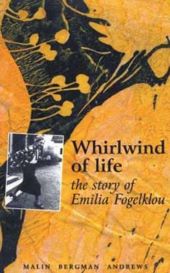Synopsis
Emilia Fogelklou (1878-1972) lived for nearly a century, experiencing the turbulent times of two World Wars and a rapidly changing society, in which she played a pioneering role. On all levels – locally, nationally, and internationally – Fogelklou involved herself with the burning questions of the time – in women’s issues, in education, and in the emerging sciences of psychology and sociology. As scholar, author, lecturer, and educator she broke new ground. As a Quaker, she took part in practical relief and rebuilding work in refugee camps.
In studying Fogelklou one is struck by the many paradoxes – she is an author in so many fields that she does not fit into any single literary slot. She is a rebel who tries to bridge conflicts; a revolutionary pacifist; an activist seeking stillness; a serious humorist; and a writer who feels more for her fellow humans than for the books she writes (including Pendle Hill pamphlet #166, about George Fox’s atonement).
Fogelklou herself just wanted to be ‘a most ordinary human being.’






